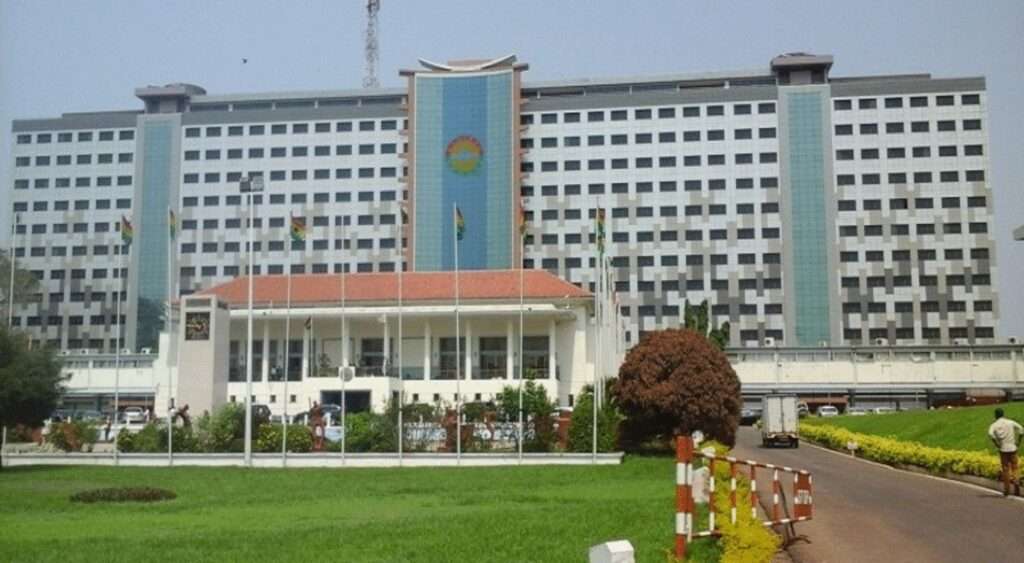Parliamentary attrition remains a significant concern in Ghana’s democratic governance. The cyclical loss of experienced members after every election raises questions about institutional continuity, effective oversight, and governance quality.
Dr. Rasheed Draman, Executive Director of the African Center for Parliamentary Affairs (ACEPA), has emphasized the critical challenges likely to pose high attrition rates in the incoming 9th Parliament.
Dr. Draman began by highlighting the historical trends in parliamentary attrition, noting;
“Every election cycle, I think we’ve always had between 40-50%. And I think this is not different, and it has always created problems.”
Dr. Rasheed Draman Executive Director of the African Center for Parliamentary Affairs (ACEPA)
He expressed concern over the current situation, where a significant number of experienced members, particularly from the New Patriotic Party (NPP), will not return to Parliament.
This trend is especially troubling given the unprecedented dominance of one political party in Parliament.

Dr. Draman underscored the importance of retaining experienced members, especially during a period when one party controls a substantial majority. He explained;
“At a time when we are going to see what we have never seen before in our country, one party having, I think, almost two-thirds majority in the house, it needs to be checked. It needs experienced hands whose responsibility it will be to undertake all the key oversight activities that are needed.”
Dr. Rasheed Draman Executive Director of the African Center for Parliamentary Affairs (ACEPA)
He warned that without experienced opposition members, the quality of oversight could decline significantly, potentially mirroring the challenges seen in earlier Parliaments.
“We are not going to see the NDC checking itself. That one, we will just simply have to forget about it. We need the opposition to hold them in check. And if you have most of the experience and hands that would have hopefully been doing that important job [gone], then I think you can foresee a situation where we are returning to the days of 7th, 6th, and 5th Parliaments.”
Dr. Rasheed Draman Executive Director of the African Center for Parliamentary Affairs (ACEPA)
Reflecting on the 8th Parliament, Dr. Draman acknowledged its achievements in oversight.
“Despite what everybody would say about its performance, we saw some serious oversight in action. We saw government being challenged every now and then.”
Dr. Rasheed Draman Executive Director of the African Center for Parliamentary Affairs (ACEPA)
However, he questioned whether this level of oversight could continue with the dominance of one party and the absence of seasoned members in the new Parliament.
Voters’ Perception and the Fate of Parliamentarians

Dr. Draman addressed the possible reasons behind the sweeping changes in the 8th Parliament, suggesting that voters’ dissatisfaction with the government may have played a significant role. He argued.
“I believe the fate of the parliamentarians was very much tied to the fate of the party and the performance of the government in general. Because Ghanaians were really angry.’’
Dr. Rasheed Draman Executive Director of the African Center for Parliamentary Affairs (ACEPA)
While the voting patterns may have had some influence, he attributed the loss of many experienced MPs to broader discontent with the government’s performance.
“I think the parliamentarians suffered from maybe the blame that has been hit on the government when Ghanaians went to the polls. Our MPs became casualties of all the anger against their various parties.”
Dr. Rasheed Draman Executive Director of the African Center for Parliamentary Affairs (ACEPA)
Dr. Draman proposed measures to address the challenges posed by high attrition rates. He emphasized the need for Parliament’s leadership to safeguard institutional quality despite frequent electoral changes.
He stressed the importance of robust oversight responsibilities across party lines. He urged;
“If our MPs from both sides decide to sleep on their oversight responsibilities and don’t hold the government to account even if it’s their government, we are going to see that anger repeated, and we are going to see the same kind of fate befalling the experienced MPs.”
Dr. Rasheed Draman Executive Director of the African Center for Parliamentary Affairs (ACEPA)
Dr. Draman warned that avoiding oversight could lead to longer-term consequences. He noted;
“It’s better to embarrass your government, get corrective measures in place, in order to avoid this kind of longer-term catastrophe that has befallen members of the 8th Parliament.”
Dr. Rasheed Draman Executive Director of the African Center for Parliamentary Affairs (ACEPA)
The high attrition rate in Ghana’s Parliament underscores the need for structural reforms to preserve institutional memory and ensure effective governance.
Dr. Draman’s analysis highlights the importance of retaining experienced MPs to maintain robust oversight and accountability.
As Ghana transitions to the 9th Parliament, both the Parliament’s leadership and its members must prioritize national interest and uphold their oversight responsibilities to avoid repeating the pitfalls of the past.
READ ALSO; Funke Akindele Sparks Dating Rumor With Falz




















